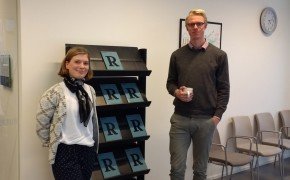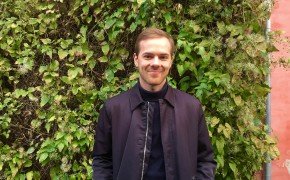Universitetsavisen
Nørregade 10
1165 København K
Tlf: 35 32 28 98 (mon-thurs)
E-mail: uni-avis@adm.ku.dk
Section
Students at the KU Law Faculty were frustrated by the practical focus of their respective degrees so they took matters into their own hands, and founded a peer-reviewed journal.

Under certain conditions, it pays to study abroad. This is according to a master's thesis from the University of Copenhagen, which has studied the impact of studies abroad on the student's subsequent salary later in their career. UCPH head of education services wants to widen the study to include more study programmes.

Michelle Bornemann Honoré has received DKK 147,000 to do research on the disease EDS in muscles and jaw joints. She hopes it can help dentists reveal the disease earlier in patients.

Music historian Christine Jeanneret has, after being ‘discovered’ by the Danish Institute in Rome, received a prize for outstanding research into the migration of Italian musicians and opera singers to Copenhagen 250 years ago.

Niels Thordal needed a couple of gap years to zoom in on the right study programme after high school. But he finally found his inspiration by working with giant, deadly, saltwater crocodiles on a safari farm in Australia.

Professor emeritus Heine Andersen worries that when publishing can be postponed, research results will be used to promote a political agenda.

Severe funding cuts threatened to decimate the staff at the Department of Nordic Studies and Linguistics, University of Copenhagen. Until someone had a crazy idea.

A new report comparing freedom of research across 28 EU universities has ranked Denmark in 24th place. According to several experts, the university act does not adequately protect the academic freedom of researchers.

She is the unofficial University of Copenhagen fundraising champion. Ulla Wewer describes her 11 years as Dean of the Faculty of Health and Medical Sciences as a 'golden age'. We asked her how she does it.

It took the workshop for fine mechanics three days to build a low-tech apparatus to cut hard grains of the barley plant into millimetre-thin slices so nutrition scientists could investigate their properties.
